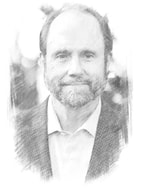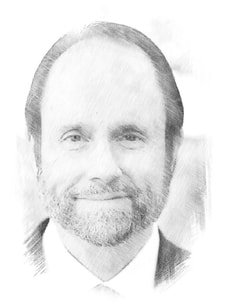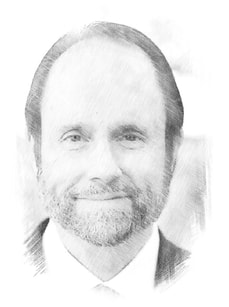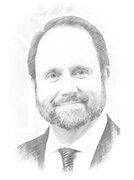jim denison
Dr. Jim Denison is a cultural apologist who helps people respond biblically and redemptively to the vital issues of our day. He is also the co-founder and Chief Vision Officer of the Denison Forum, a Dallas-based nonprofit that comments on current issues through a biblical lens. Every weekday morning, his Daily Article email newsletter reaches more than 340,000 readers, and The Daily Article podcast is downloaded more than 75,000 times each month. Dr. Denison’s social media following has a reach of 2.1 million, with over 400,000 Facebook followers. He is a widely sought speaker, podcaster, and subject-matter expert on radio about cultural issues from a biblical perspective. Dr. Denison has been a frequent guest on Equipped with Chris Brooks (Moody Radio) and the nationally syndicated Point of View with Kerby Anderson (360+ radio stations). Prior to launching Denison Forum in 2009, he pastored churches in Texas and Georgia. He holds a Ph.D. and a Master of Divinity from Southwestern Baptist Theological Seminary
 Jim Denison Files
Jim Denison Files
Regarding the timing of his return, Jesus was blunt: “Concerning that day and hour no one knows, not even the angels of heaven, nor the Son, but the Father only” (Matthew 24:36). He added that he would come “at an hour you do not expect” (Matthew 24:44).
............If we knew when Jesus would come back, wouldn’t that knowledge impact every dimension of our lives? If his return is not in our lifetime, would we presume a future that is actually guaranteed to none of us? (Even if Jesus doesn’t come back for a thousand years, you and I could die tomorrow.) Alternately, if it is imminent, would we fall into idleness while awaiting his return, which was apparently a problem for some in the early church (2 Thessalonians 3:6–12)?
As with explanations for suffering, God does not want us to know when Christ will return, so we will prepare every day for his coming. Why? Because the best way to live every day is to live as if it were that day.
--Jim Denison; God's Response to Humanity's Impossible Quest to Understand All Things 11/15/23
............If we knew when Jesus would come back, wouldn’t that knowledge impact every dimension of our lives? If his return is not in our lifetime, would we presume a future that is actually guaranteed to none of us? (Even if Jesus doesn’t come back for a thousand years, you and I could die tomorrow.) Alternately, if it is imminent, would we fall into idleness while awaiting his return, which was apparently a problem for some in the early church (2 Thessalonians 3:6–12)?
As with explanations for suffering, God does not want us to know when Christ will return, so we will prepare every day for his coming. Why? Because the best way to live every day is to live as if it were that day.
--Jim Denison; God's Response to Humanity's Impossible Quest to Understand All Things 11/15/23
 Jim Denison Files
Jim Denison Files
We are inundated with so much information these days that it can be difficult—if not impossible—to sort through all of it to discern what’s true from what’s false, especially when the line between the two seems to blur. What we can’t afford to do, though, is ignore the truth when it’s made known just because we would prefer to believe the lie. Paul spoke to this tendency when he warned Timothy that “the time is coming when people will not endure sound teaching, but having itching ears they will accumulate for themselves teachers to suit their own passions, and will turn away from listening to the truth and wander off into myths” (2 Timothy 4:3–4). As Christians called to serve the God who is truth (John 14:6), it’s imperative that we don’t make that mistake. Every time we do—even when the lie may seem harmless—it harms the credibility upon which we must draw when sharing the gospel. And the truth of the gospel must always be our highest priority.
--Denison Forum; Michael Oher, of “The Blind Side” fame, sues Tuohy family over conservatorship 8.8.23
--Denison Forum; Michael Oher, of “The Blind Side” fame, sues Tuohy family over conservatorship 8.8.23
 Jim Denison
Jim Denison
God’s word is blunt: “If you show partiality, you are committing sin and are convicted by the law as transgressors” (James 2:9). “Partiality” translates prosopolempsia, meaning to show favoritism or prejudice, to treat one person as inherently better than another. Such prejudice is “sin.” God told his people: “You shall treat the stranger who sojourns with you as the native among you, and you shall love him as yourself, for you were strangers in the land of Egypt” (Leviticus 19:34). Jesus taught us: “Whatever you wish that others would do to you, do also to them, for this is the Law and the Prophets” (Matthew 7:12). We are to “love your neighbor as yourself” (Matthew 22:39, quoting Leviticus 19:18). Peter testified to the Gentiles who sought to hear the gospel: “You yourselves know how unlawful it is for a Jew to associate with or to visit anyone of another nation, but God has shown me that I should not call any person common or unclean” (Acts 10:28).
- Jim Denison; Denison Forum; 5.11.20
- Jim Denison; Denison Forum; 5.11.20
 Jim Denison
Jim Denison
America’s Christians therefore have a vital and urgent task. We are watchmen on the wall, warning those inside the city of impending danger (Ezekiel 3:17–21). We are intercessors called to represent our people before God (1 Timothy 2:1–2) and ambassadors called to represent God before our people (2 Corinthians 5:20). We are the only salt and light in a world decaying in the dark (Matthew 5:13–16). We are the body of Christ, the visible manifestation of Jesus’ continuing ministry in our day (1 Corinthians 12:27). -Jim Denison; Denison Forum; Pastor tackles armed suspect during church service: A Veterans Day reflection; 11.11.21

